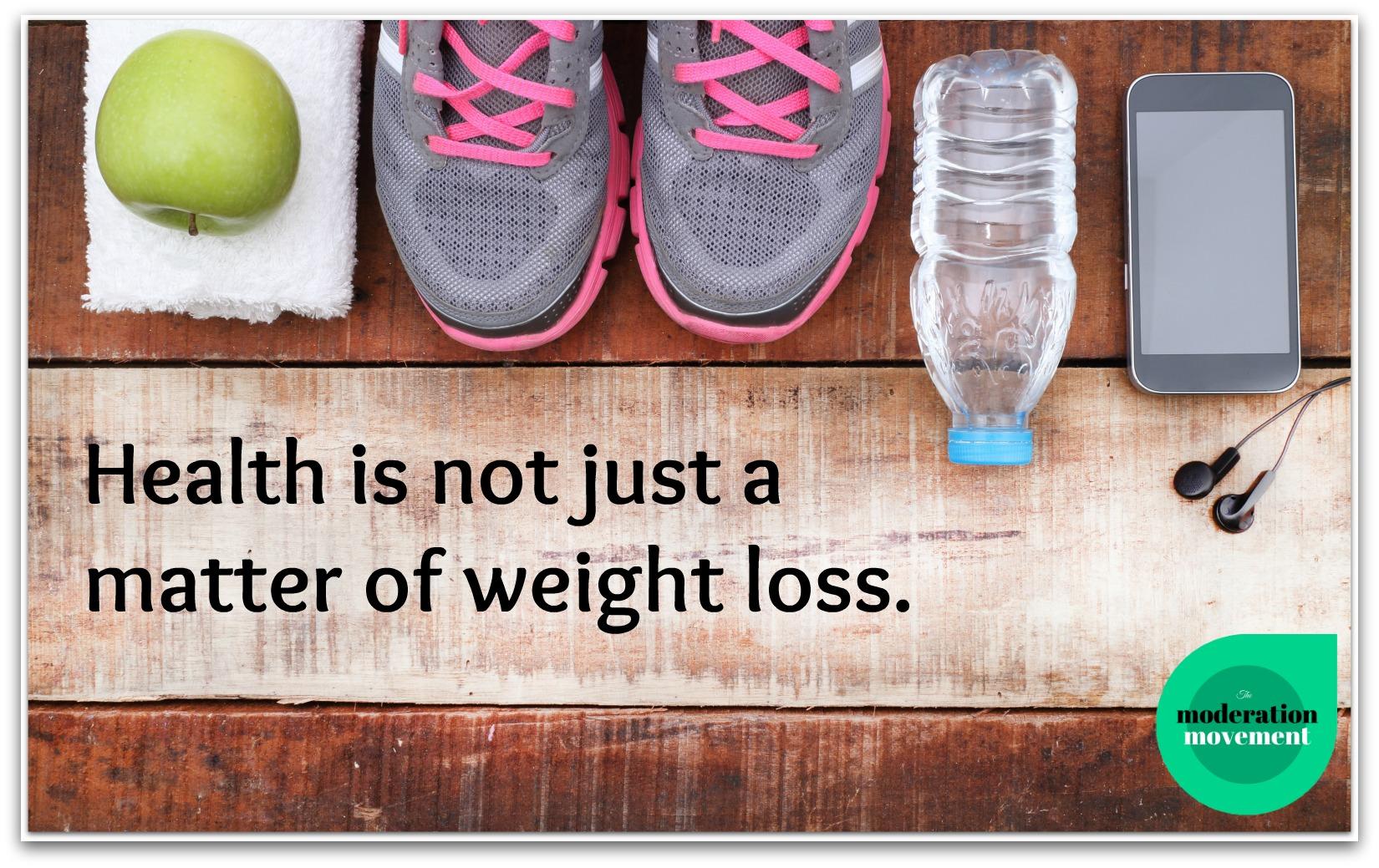Health is not just a matter of weight loss

No, I am not anti-weight loss and yes, weight loss can be a positive thing.
If through focusing on your health, nourishing your body well, being physically active and socially engaged, you naturally lose weight, then that is what is right for your body.
The issue is, that by constantly promoting weight loss as necessary for health, this has the effect of placing the focus of improving a person’s health almost entirely on weight loss.
When you focus on weight loss, these things tend to happen and they actually damage your health:
- You go on a diet, or restrict your calorie intake (aka dieting).
- You feel great, perhaps even virtuous initially, but this rarely lasts…
- You start exercising. But many people go to0 hard initially in an attempt to burn calories and fat and end up hating exercise because it’s painful, they get injured and they simply don’t enjoy it.
- You become preoccupied with food and for many this can lead to increased anxiety and emotional distress around food and eating.
- You become preoccupied with your body and this can lead to becoming anxious, distressed and unhappy with your body.
- You start resenting trying to eat well or being healthy, because dieting is restrictive (and boring) and the weight isn’t falling of your body like promised and even if you are losing weight, it’s not as much as you hoped.
- You probably lose weight initially only to regain that weight in 1-5 years, often gaining more weight.
- You spend a good part of your life yo-yo dieting and trying to keep your weight down.
- Your risk of developing disordered eating or an eating disorder increases.
- Somewhere along the way, the focus on losing weight over-shadows what it really means to be a healthy happy human.
- You stop dieting and blame yourself for failing, rather than blaming the ineffective method.
While this may seem a very bleak picture to paint, it is the experience myself and other dietitians hear over and over from people when they come to see us. It is also well documented in research.
Note: these things do not happen to everyone, but they happen to a large number of people who try to manage their health by dieting to lose weight.
How would things look different if we took the emphasis off losing weight?
- You can stop dieting in an attempt to lose weight.
- Instead you could take a more gentle approach where you learn to become the expert of your body and you decide the best way to manage your eating.
- You could try a Non-Diet Approach where you learn to eat intuitively again (summary of IE research)
- Intuitive eaters have been found to have a more positive relationship with food and their bodies.
- Intuitive eaters are less likely to overeat or binge eat.
- Intuitive eaters tend to eat a variety of nourishing food.
- With no foods being seen as “bad” or needing to be avoided, the desire to over-eat certain foods starts to lessen and eventually disappears.
- Intuitive Eating has recently been found by this study to be inversely associated with body weight.
- You can find ways to move your body that you truly enjoy as you no longer tie exercise to working hard in order to burn calories and fat.
- Through finding ways to move your body that you truly enjoy, you’re more likely to maintain the activity long-term.
- Through improved eating habits, being more physically active and generally feeling better within yourself, you will be doing your best to manage any risk factors for diet-related diseases.
- You finally find a way to manage your health that you can not only maintain long-term, but that you actually enjoy!
I have only addressed eating and activity in this piece, of course health is much more than just what we eat and how active we are. Other factors that strongly influence our health are, but not limited to, sleep, stress levels, work, relationships, mental health, disability and social engagement.
Note: I would also like to acknowledge that for many people, improving health is much more complex than what I have outlined here. The capacity to improve health is too often limited by socio-economic factors, lack of finances, access to food and education.
Thanks for reading!









